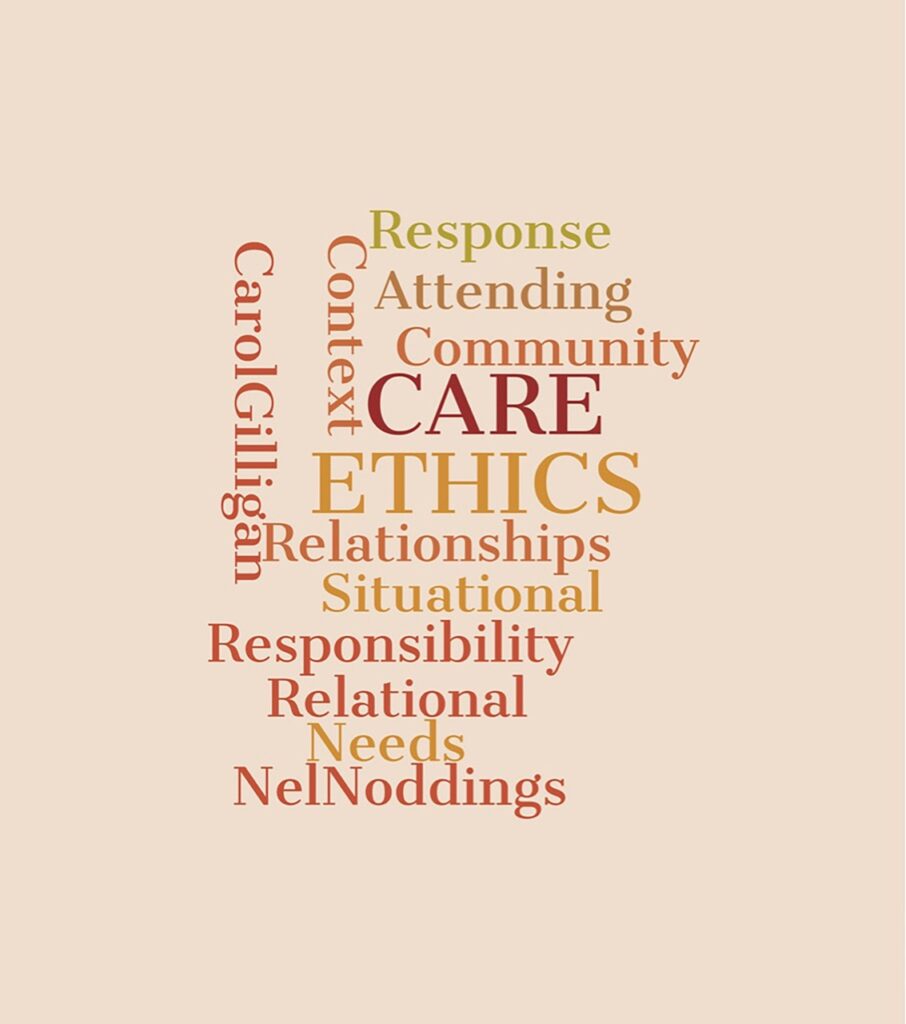Now you have considered the importance of relationships, let’s think about ‘ethics of care’.

Ethics of care is a perspective that allows us to examine our principles and morals when we are making decisions about how we build relationships.

Read: The language of care Ethics – Nel Nodding
<undefined></undefined>
Try thinking about some of these excerpts below, make some notes about why these excerpts are important and what some of the challenges might be:
- “in an encounter, the carer is attentive; she or he listens, observes, and is receptive to the expressed needs of the cared for” (page 2)
- “the carer feels with the cared for” (page 2)
- “motivational displacement…..the motive energy is directed away from the carers ideas….and towards those of the cared for… the response must ensure that the caring relationship can be preserved” (page 2)
- “the carer responds in a way that shows that the caring has been recognised” (page 2)
- “relational caring is important more so than virtue relations. A virtue carer may urge the cared for to shape-up. This generally supports the needs of the carer and not the cared for. Relational caring is much more important with consideration, the focus is on the response from the cared for…..the response often provides further information about their needs or interests and how the carer might deepen or broaden the caring relationship.” (page 2)
- “attention is of central importance in care ethics. A carer is attentive. The idea is to hear and understand the expressed needs of the cared for. To learn what the cared for is going through we put aside our own ideas and listen.” (page 3)
Case Study
Let’s consider how you might apply ethics of care, you principles into practice.
Consider this case study: OTR – Relationship Project
What principles and morals can you see being applied in this case study?
Can you see principles and morals around:
- Participation
- Collaboration
- Ownership
- Capabilities before vulnerabilities
- Co-creation
- Co-delivery
- Strength based approach
- Young person identifying solution best for them
- Agency

Remember agency is about individuals acting independently and making their own choices. It opposes structures that limit agency.






